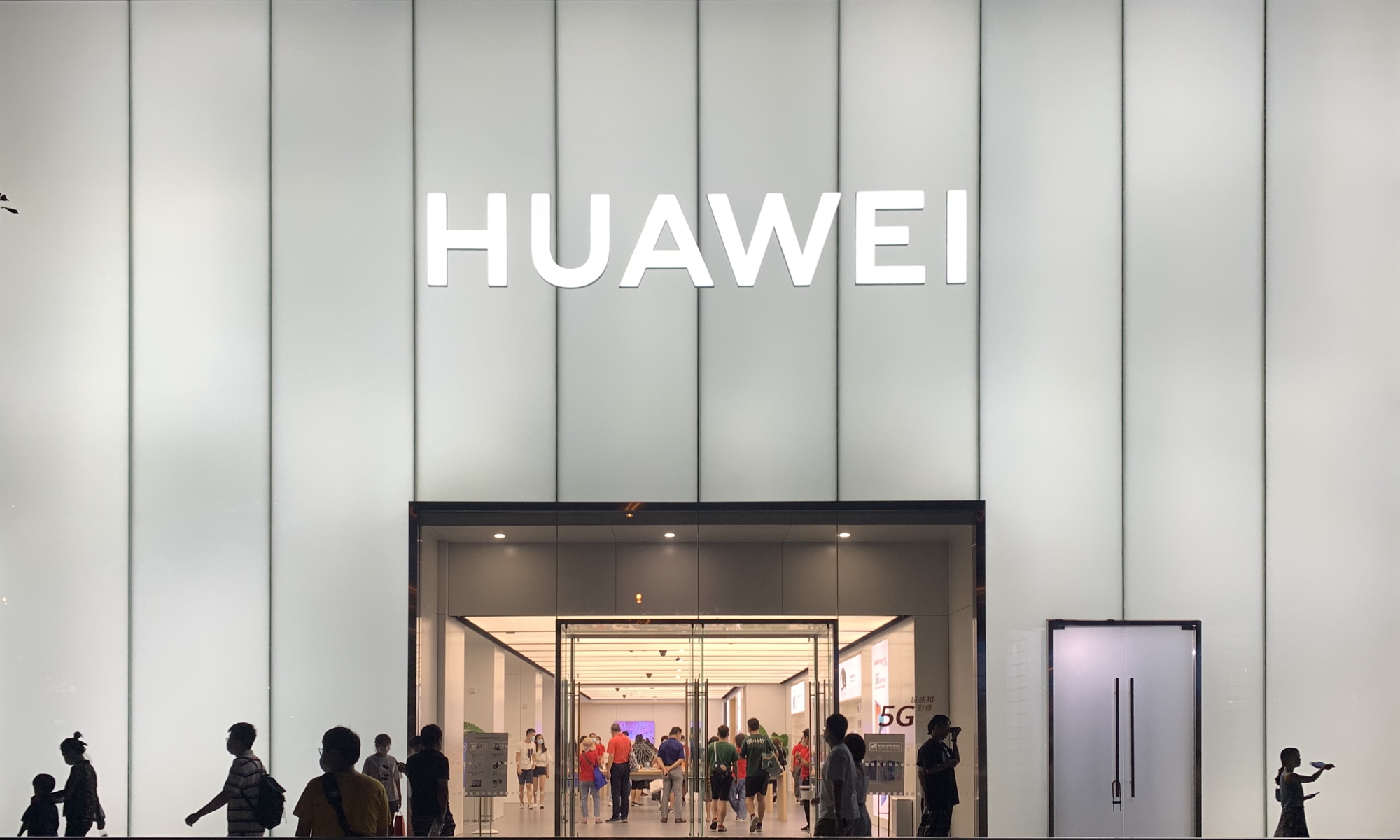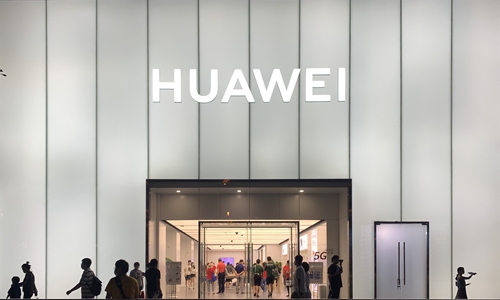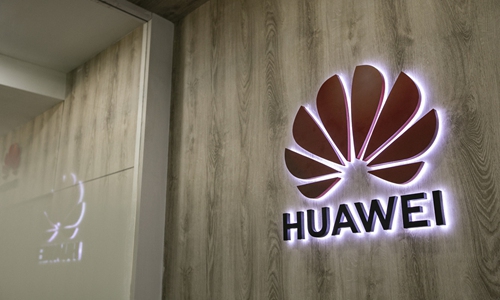SOURCE / INDUSTRIES
Finland’s new telecoms law ‘leaves room for Nokia in China’
Move offers room for negotiating interests for Nokia

Huawei Photo: Deng Zijun/GT
Finland on Monday approved a bill that could be used to exclude Huawei from its networks, but analysts said that the law - which doesn't point to any specific vendor, unlike its neighbor Sweden - may leave more room for negotiating more interests for its own 5G gear maker Nokia in China's market.
Finland's parliament on Monday approved a bill designed to protect its networks against cyber threats and espionage. The legislation identifies no specific companies or countries, but it bans equipment "within the network's key assets if there are strong grounds to suspect the use of such equipment would endanger national security or defense," Bloomberg reported on Tuesday.
Analysts described the move as flexible, since it not only displays the country's political attitude amid sustained US pressure, but also avoids directly targeting China - a key market for Nokia, which now holds a smaller share in China's 5G network rollout compared with Swedish counterpart Ericsson.
"We aren't pointing fingers at any one party. We should ensure we don't take action that closes doors for Nokia as a result of any backlash," Johannes Koskinen, a lawmaker from the ruling Social Democratic Party, was quoted as saying in the Bloomberg report.
"As the telecoms network plays an increasing role in production, the concerns about security are understandable. But obviously linking security to geopolitics as an excuse to exclude specific manufacturers is not only anti-free market, it also harms the rights of local consumers and businesses," Jiang Junmu, chief writer at Chinese telecom industry news website c114.com.cn, told the Global Times on Tuesday.
"Finland's approach is more flexible, leaving more room for repositioning," said Jiang, noting that the Finnish government is alive to opportunities for its domestic companies in the Chinese market.
The Finnish law is "fair and objective," with "a more measured approach focusing on equipment instead of vendors," Huawei's head of public affairs Hennariikka Andersson told Bloomberg.
"It's unfortunate that the international network-security debate has focused only on Chinese vendors when we know that vulnerabilities may be found in all manufacturers' equipment," Andersson said.
The Finnish move comes after Sweden's telecom regulator, The Swedish Post and Telecom Authority (PTS), banned the use of equipment from China's Huawei and ZTE by telecom operators taking part in the 5G auction in October. Huawei won a court injunction and an appeal by PTS is pending.
Sweden should reverse its ban on Huawei and ZTE from the planned 5G spectrum auction to avoid a "negative impact" on its own companies, said China's Foreign Ministry in response to the Swedish move.
Ericsson, one of Nokia's direct rivals, is building 5G wireless technology for each of China's three major telecom operators, and this accounts for around 10 percent of sales from the country, according to media reports.
"It's unlikely that the two Nordic countries will totally shut Huawei out, as 5G construction benefits from the participation of a global telecommunications leader like Huawei," Ma Jihua, a veteran industry analyst and a close Huawei follower, told the Global Times on Tuesday.
"It may be more of a political statement rather than a real block," Ma said.
Huawei has been facing increasing uncertainties in Europe, as it has been locked in a trade spat between China and the US, and the latter has been pressuring its allies to ban the company from their 5G networks.
In January, the EU published a "toolbox" of recommendations for its member states, saying they could either "restrict or exclude" so-called high-risk 5G vendors, such as Huawei, from core parts of their telecoms networks.
However, Huawei has been reiterating its commitment to the European markets where it has invested in recent years. During the annual European Innovation Day held online in Germany last week, the firm vowed to strengthen cooperation with local companies and boost the development of small and medium-sized enterprises through its technological strength.



